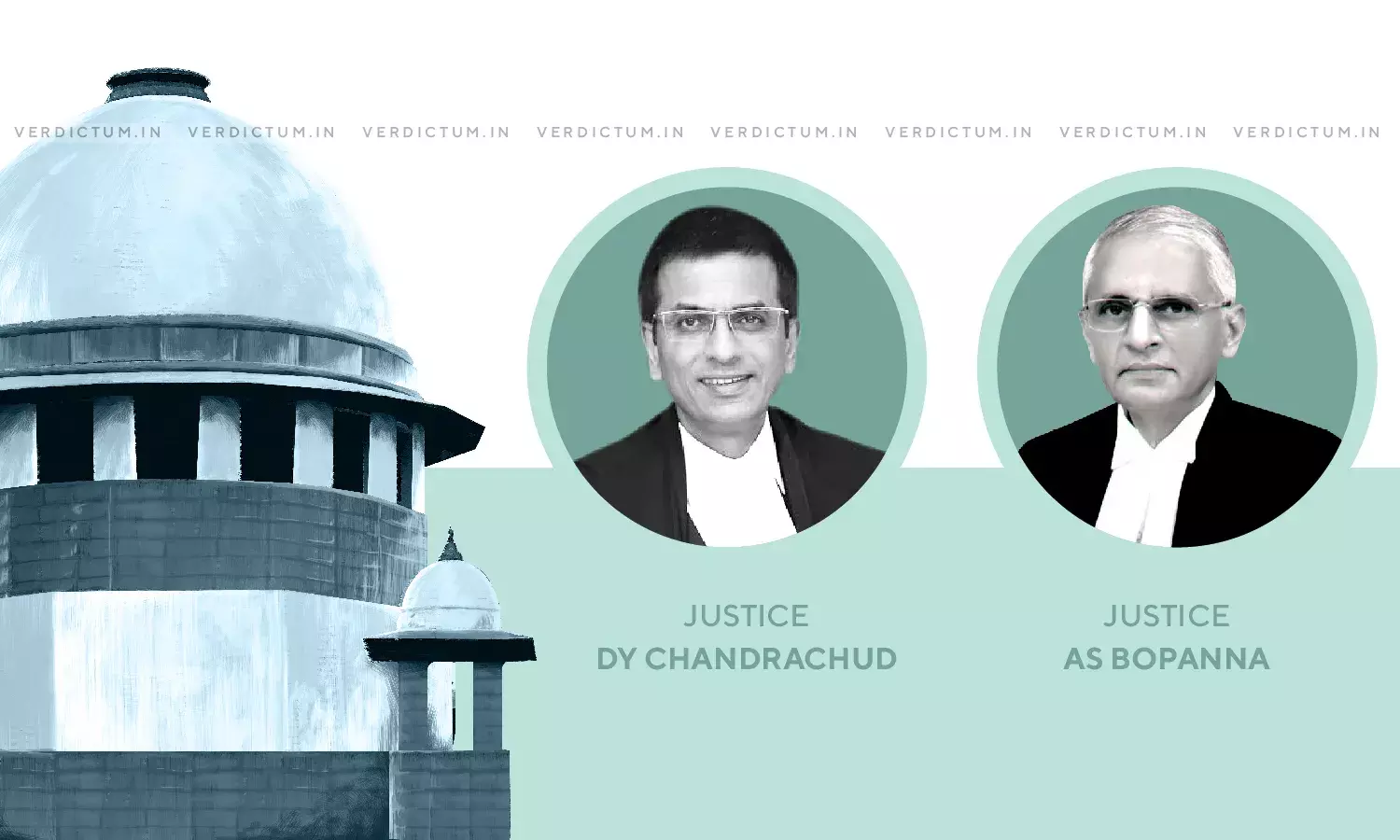In Case Of Appointments Or Pay-Scales, Article 14 Does Not Envisage Negative Equality To Perpetuate Illegality: SC Reiterates

A Division Bench of the Supreme Court comprising of Dr. Dhananjaya Y Chandrachud J. and M.R. Shah J. has reiterated that in a case of appointments or pay-scales, Article 14 of the Constitution does not envisage negative equality and if State has committed the mistake, it cannot be forced to perpetuate the same mistake.
The Division Bench of the High Court had allowed the appeal preferred before it by Gujarat Water Supply and Sewerage Board and had set aside the judgement rendered by the Single Judge, via which, the Single Judge had allowed the writ petition preferred by the appellants. The Single Judge had held that the appellants were entitled to pay scale of Rs. 950-1500 with all consequential benefits upon completion of 10 years of service and revised their pay scale as per 5th, 6th, and 7th pay commission scales on such basis.
Mr. Sanjay Parikh, Senior Advocate appeared on behalf of the original writ petitioners while Ms. Aastha Mehta advanced submissions on behalf of the Board.
There were many daily wage workers working under several departments of the State Government for past years. The Government passed a resolution wherein it decided to give certain benefits to skilled daily wagers depending upon the period of services undergone.
The Board had adopted the resolution. The original petitioners are working as daily rated employees with the Board. As the Board had adopted the resolution, those workers who had completed 5 years of services, were granted the benefit of pay scales of Rs. 750. The resolution was modified via 1991 and 1992 resolutions. These were not adopted by the Board.
Apparently, some of the zonal officers of the Board had erroneously extended the benefit of modified resolutions to unskilled daily wagers. Recoveries were initiated by the Board qua which lis is pending.
Various representations were issued to the Board by the writ petitioners to place them in a pay scale of Rs. 950-1500 as per the modified resolutions. Thereafter, doors of the High Court were knocked.
The Court culled out the question for its consideration as follows.
"The short question which is posed for consideration before this Court is whether the original writ petitioners – daily rated employees working with the Respondent - Board are entitled to the benefits flowing from subsequent Resolutions dated 01.05.1991 and 15.02.1992? Another question which is posed for consideration before this Court is whether the principle of negative equality shall be applicable in a case where the other employees were wrongly granted the benefits and/or the employees who are claiming the parity shall have to establish their rights independently to get the particular benefits?"
The Court noted that daily rated employees working with the Board cannot claim parity with employees of the State Government. The Court noted that Board is an autonomous and statutory body created under the Act. It was observed that it was ultimately for the Board to take a conscious decision which can be termed as a policy decision on the pay scales to be adopted or other benefits having financial implications.
The Court noted that it was a settled proposition of law that the economic viability of employer is an important factor while fixing the wage structure, and otherwise, the unit itself may not be able to function – eventually being closed down inevitably having disastrous consequences for the employees themselves.
The Court observed that equation of posts and salary is a complex matter which ought to be left to expert body and undertakings and the Court cannot interfere. The Court noted that the Boar is an independent entity having financial capacity of its own; having to depend on its own resources.
It was observed that a conscious decision was taken by the Board to not adopt the 1991 and 1992 resolutions considering the additional financial burden. The Court made the following observations in this behalf:
"At the cost of repetition, it is observed that unless and until the Board has specifically adopted the Government Resolutions of 1991 and 1992 like adopting the parent Resolution dated 17.10.1988, the daily rated employees/employees of the Respondent – Board shall not be entitled to any benefit flowing from the Resolutions of 1991 and 1992. Therefore, the learned Single Judge erred in directing the Board to grant the benefits flowing from the Government Resolutions dated 01.05.1991 and 15.02.1992 which is rightly set aside by the Division Bench of the High Court."
On the point of violation of Article 14, the Court held that it was the case of the Board that benefits were mistakenly given which came to be withdrawn and recoveries are pending. The Court held that Article 14 cannot be invoked on the ground of parity if the writ petitioners were otherwise not entitled to such benefit.
The Court noted that Article 14 embodies concept of positive equality alone and not negative equality and it cannot be relied upon to perpetuate illegality and irregularity.
The Court came to the conclusion that the Single Judge had committed grave error in holding that the action of the Board in not granting benefits was discriminatory and violative of Article 14.
The same, as per the Apex Court was rightly corrected by the Division Bench of the High Court, which rightly set aside the order of the Single Judge.
The Court held that the challenge to the impugned judgement of the Division Bench failed, and the original writ petitioners are not entitled to benefits from the 1991 and 1992 resolutions. The Court, however, noted that they shall be continued to pay or grant the benefits from the parent resolution adopted by the Board.
In light of the above discussion, the appeals were dismissed. There was no Reiteratesorder as to costs.
Click here to read/download the Judgment

